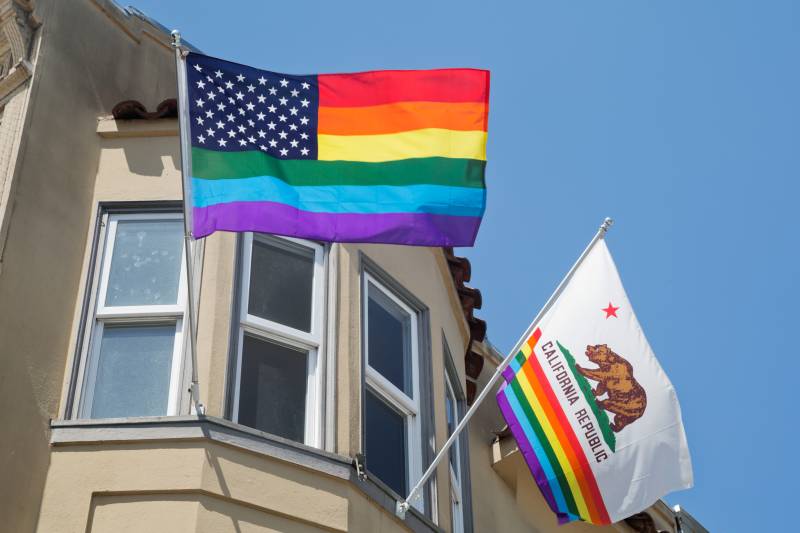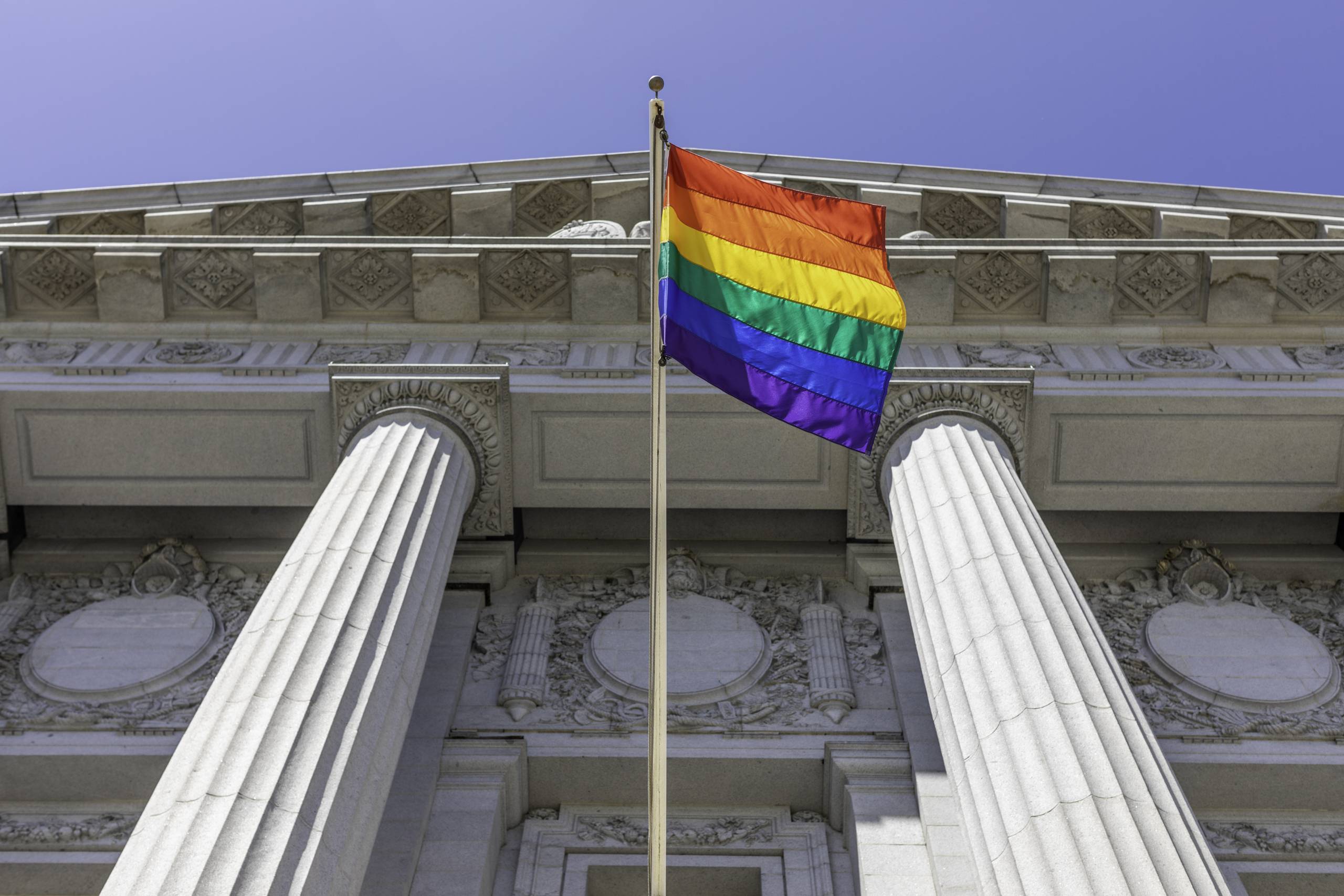In the last days of June, the Supreme Court struck down affirmative action, opened the door to LGBTQ+ discrimination and outlawed the Biden administration’s plan to forgive student loans. These are monumental rulings that directly affect people of color, queer folks, prospective college students and the 43 million Americans with federal student loans — leaving many devastated and fearful for the future.
In our series explaining this summer’s Supreme Court decisions, we’re unpacking how these rulings will affect you — and what can be done now. This explainer focuses on the case 303 Creative LLC v. Elenis — which saw the court rule in favor of a web designer who refused to make wedding websites for gay couples — and what it could mean for discrimination against LGBTQ+ folks in the United States.
KQED gathered legal and judicial insight on this ruling at a panel hosted at Manny’s, a community space in San Francisco. On this panel were:
- Courtney Liss, associate at San Francisco law firm Keker, Van Nest and Peters
- Cody Harris, partner at Keker, Van Nest and Peters
- Matthew Coles, professor of practice at UC Law San Francisco (formerly UC Hastings)
What was the Supreme Court’s decision about LGBTQ+ discrimination?
In a defeat for gay rights, the Supreme Court’s conservative majority ruled in 303 Creative LLC v. Elenis that a Christian graphic artist who designs wedding websites can refuse to work with same-sex couples.
Justice Sonia Sotomayor, one of the court’s liberal justices, wrote in a dissent that the decision’s effect is to “mark gays and lesbians for second-class status” and that the ruling opens the door to further discrimination. Read more about the case from NPR or read the Supreme Court’s ruling (PDF) for yourself.
What will change for queer people in the US after this case?
This ruling has opened the door for LGBTQ+ people to be discriminated against when requesting services from certain professionals, says UC Law San Francisco’s Coles, specifically in situations involving the use of words or the creation of images and films.
Why? Smith framed her website services as “expressive in nature” (PDF) because she designed them to be customized, original and intended “to communicate a particular message.” Consequently, other professionals operating what could be termed an “expressive business” could use this ruling to deny service to LGBTQ+ people as well.

